Trump pledges to drive wedge between Russia and China
- Update Time : Sunday, November 3, 2024
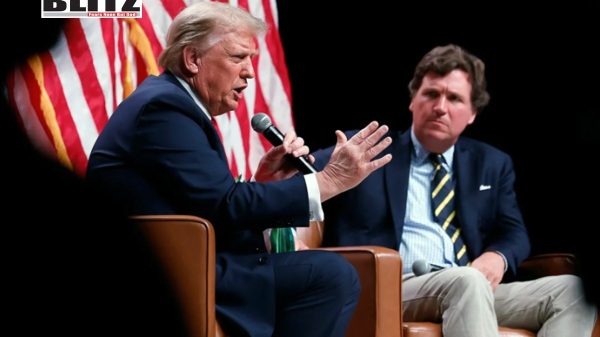
Former US President and 2024 Republican presidential candidate Donald Trump has vowed to disrupt the increasingly close relationship between Russia and China if he is reelected. During a live interview with journalist Tucker Carlson in Arizona, Trump accused President Joe Biden’s administration of fostering an environment that allowed Russia and China to solidify their ties, a relationship Trump believes poses a significant risk to US interests.
Speaking to a large crowd, Trump criticized Biden’s foreign policy, claiming it has led to what he described as an alliance among US adversaries, including Russia, China, Iran, and North Korea. This grouping, he argued, is detrimental to America’s position in global affairs, and he labeled the US as “a nation in very serious decline.”
“We’re a failing nation,” Trump declared, emphasizing his concerns over Biden’s handling of international relations. Trump expressed particular frustration at what he perceived as Biden’s role in bringing together Russia and China, a situation he argued was avoidable. “Look at what these stupid people have done. They’ve allowed Russia, China, Iran, North Korea, and others to get together in a group,” he said. Trump recounted advice from a former professor at the Wharton School of Finance, who once told him that “the one thing you never want to happen is Russia and China uniting.”
In Trump’s view, this alliance threatens America’s influence and, if allowed to grow, could lead to adverse outcomes, including the erosion of the US dollar’s position as the global reserve currency.
The relationship between Russia and China has deepened over the past few years, with the two countries sharing common ground in opposition to what they call American “unilateralism” on the world stage. Both nations have been vocal in criticizing the US for exerting its influence through economic sanctions and military alliances. Since Russia’s invasion of Ukraine, Beijing has refused to join Western sanctions against Moscow, and both countries continue to work together in organizations such as BRICS (Brazil, Russia, India, China, and South Africa) and the Shanghai Cooperation Organization (SCO).
Russian President Vladimir Putin has called the bond between Moscow and Beijing a “strategic partnership,” with both nations viewing each other as essential to counterbalancing the US and its allies. Their collaboration extends beyond military and political cooperation; they also coordinate on economic fronts, as evidenced by recent trade agreements conducted increasingly in their own currencies rather than the US dollar.
At a recent BRICS summit in Kazan, Russia, member states, including China, denounced what they termed “illegal” Western sanctions. These sanctions, according to BRICS leaders, damage the global economy and threaten the sovereignty of sanctioned nations. Putin highlighted the shift away from the dollar in Russian trade, with about 65% of transactions between BRICS countries being conducted in national currencies and 90% of Russia’s trade with China settled in rubles and yuan.
One of Trump’s primary campaign promises centers on “un-uniting” Russia and China, a task he believes is essential to restoring American dominance on the global stage. Without offering specific details on his approach, Trump expressed confidence that he could undo the Biden administration’s perceived mistakes and drive a wedge between the two superpowers. “I’m going to have to un-unite them, and I think I can do that too,” he asserted.
Trump’s assertion implies that he believes diplomacy or policy shifts can fracture the bond between Moscow and Beijing. Yet the feasibility of such a strategy remains uncertain, particularly given the numerous economic, political, and military ties that bind the two countries. Analysts argue that even if U.S. leadership changes, altering the trajectory of Russian-Chinese relations could be a formidable challenge due to the deeply ingrained strategic partnership.
Trump also raised concerns about the global position of the US dollar, suggesting that the growing alignment of nations like Russia and China threatens the dollar’s dominance in international trade. The BRICS group has taken significant steps toward decreasing their reliance on the dollar, including trading in local currencies. According to Trump, a loss of the dollar’s status as the global reserve currency would have catastrophic implications for the US economy. “We’re losing the dollar as the standard because of these people… if we lose the dollar as the standard, that’s like losing a war,” he warned.
The dollar’s decline as a reserve currency could mean higher costs for American imports, potential inflationary pressures, and reduced global influence. For countries like Russia and China, bypassing the dollar serves as a way to insulate their economies from US-imposed sanctions and minimize American influence over their financial transactions.
As Trump noted, the growing influence of the BRICS bloc presents a challenge to traditional Western-dominated financial systems. With BRICS members aiming to increase trade using national currencies, the demand for dollars could decrease, reducing its significance as the primary means of exchange in international markets. For example, with 65% of intra-BRICS transactions occurring in local currencies, countries within this bloc are reducing their dependence on the US dollar, which in turn diminishes the US’s leverage over their economies.
The Kremlin has framed this pivot toward local currencies as a necessary response to Western sanctions, arguing that reliance on the dollar is a vulnerability. This movement toward “de-dollarization” among BRICS nations reflects a broader trend of diversifying currency use to avoid the financial risks tied to US-dominated banking systems.
Trump’s approach to geopolitics is expected to deviate sharply from Biden’s. Trump has previously advocated for more transactional relationships with other countries, including allies, and for prioritizing American economic interests over traditional alliances. Should he return to the White House, it is likely that Trump would seek to renegotiate or reframe US relationships to weaken alliances that challenge American dominance.
However, many experts question whether any US president can fully reverse the trajectory of Russian-Chinese cooperation, as it is based on mutual strategic interests. Moscow and Beijing share a desire to counterbalance US influence, and they have established a comprehensive economic partnership that includes trade, energy, and infrastructure agreements.
For Trump, the challenge lies in persuading Russia and China that they have more to gain from competing rather than cooperating with one another. This approach would require a delicate balance of diplomatic pressure and incentives, which could prove difficult given the current geopolitical climate.
As Trump seeks to recapture the White House, his pledge to disrupt the Russia-China relationship adds a bold, if uncertain, goal to his platform. His critique of Biden’s foreign policy underscores his broader message that American power and prestige have declined. While Trump’s plan to “un-unite” Russia and China might resonate with voters seeking a change in foreign policy, achieving this objective would require navigating the complex dynamics that underpin the Russian-Chinese alliance. Whether Trump’s proposed strategies would be effective remains to be seen, and the evolving global landscape suggests that reshaping such deep-seated partnerships may require more than campaign promises.


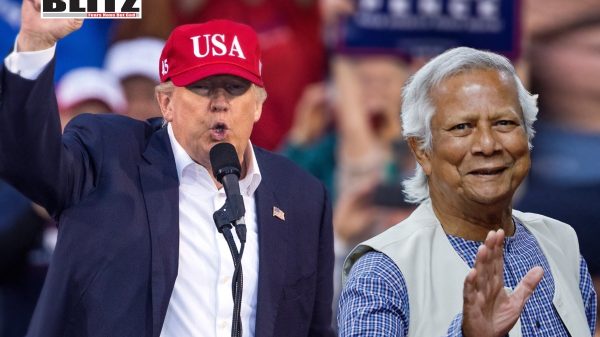
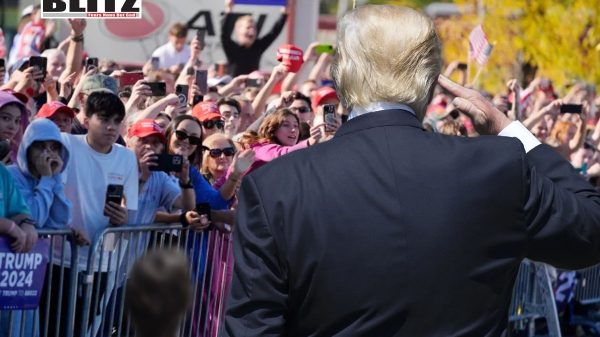
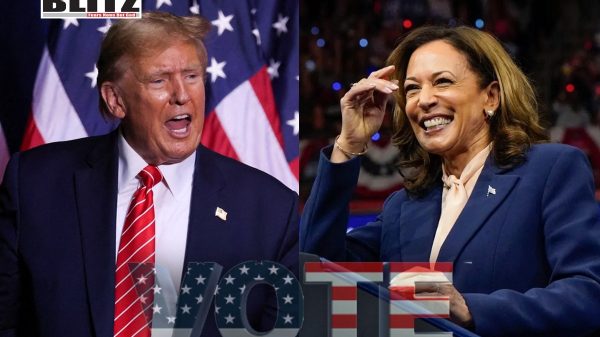

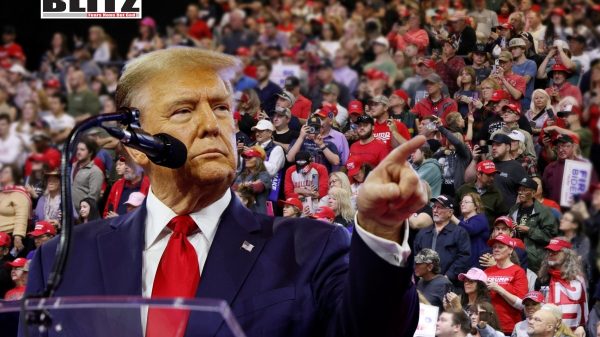
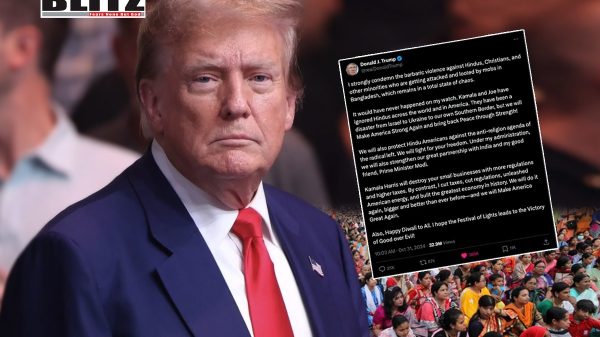
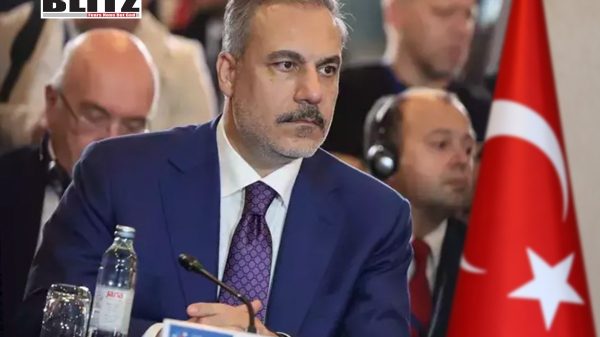
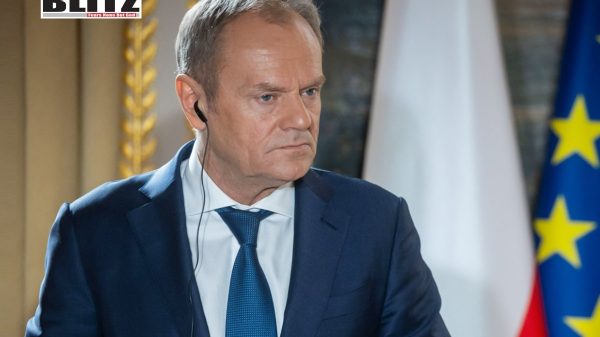
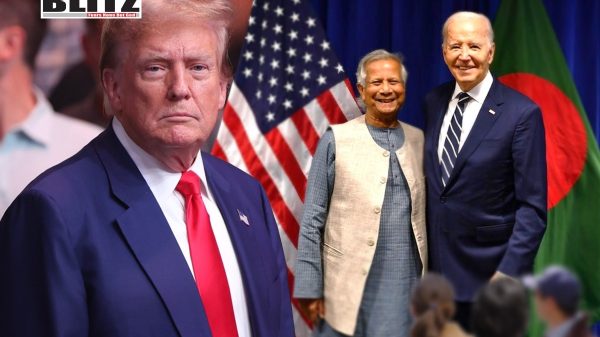
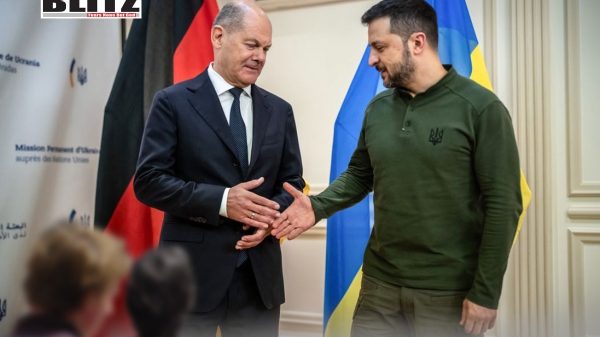
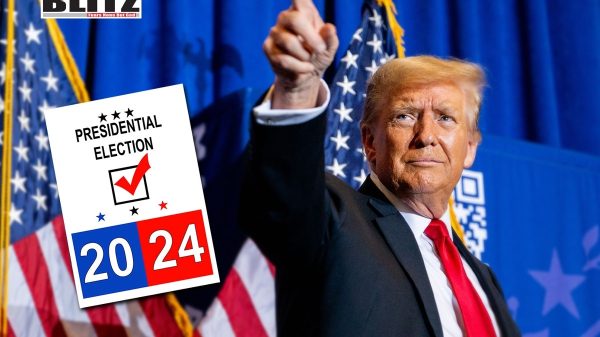

Leave a Reply